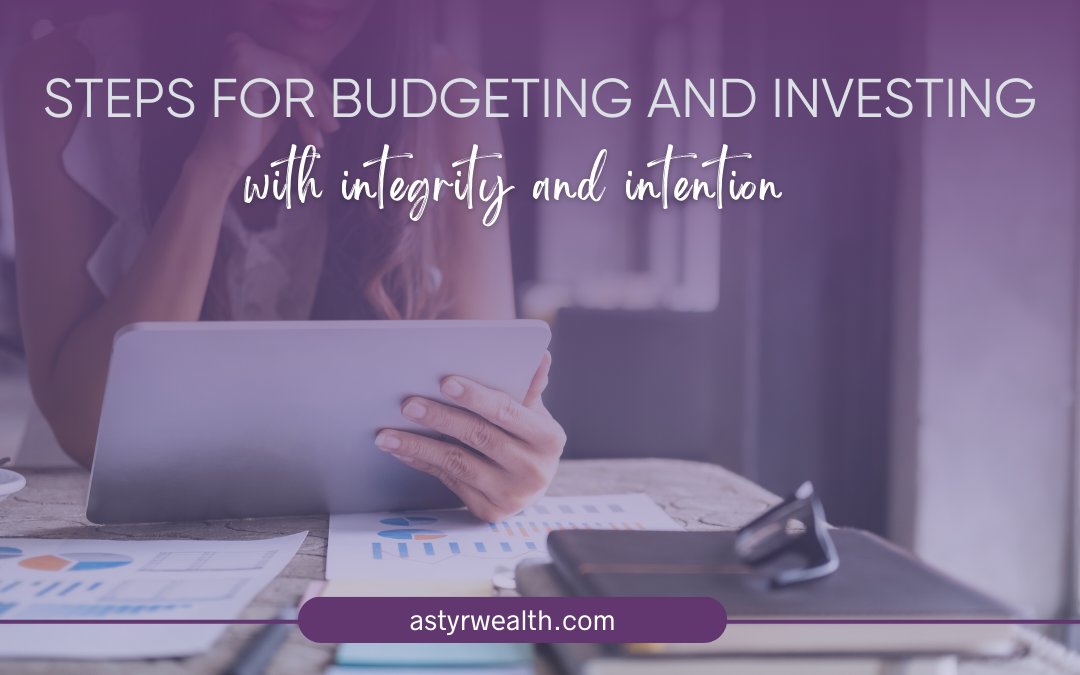
New Year, Fresh Start
With 2024 coming to a close, you may be considering some of your goals for the new year. A popular personal goal for many is being more intentional in several facets of their life, and you can add intentional budgeting and investment to that 2025 goal list.
Budgeting and investment involves more than just keeping track of numbers. It affects more than just your bank account; your conscience and even the world can be impacted by the budgeting and investment choices you make. Let’s take a look at how you can build financial habits that honor your faith and your family.
Analyzing Your Current Spending Habits/Portfolio
The first step in changing the way you choose to budget and invest your money is to analyze your current spending habits and take a look at your portfolio. There are a few ways you can do this, either by getting assistance from a financial firm or a website such as mint.com. Regardless, it’s best to analyze the last 90 days to get a clear picture of your spending.
Deciding Your Goals
Once you have an idea of where your money is going, you can think about your goals and if they need to be adjusted. It is very common to adjust your financial goals, as well as make new ones.
It is important to remember that wealth building is an intentional and deliberate process that occurs over time, and it is not something that happens quickly overnight like the media sometimes likes to portray.
Ranking Your Financial Priorities
When writing up your budget, you have to sort out your spending habits into top priority to lower priority. As an example, we’re going to rank what most people spend in priority.
● Savings and investments, such as college and emergency funds and down payments, are typically high priority.
● Mortgage, bills, groceries, fuel and transportation are also a high priority.
● Leisures such as miscellaneous shopping for clothes and electronics, going out to any restaurants or bars, travelling, and other entertainment are commonly the lower priority.
You may also want to make it a goal to contribute to your favorite charity or nonprofit. While any monetary donation is helpful, it is also important to ensure you are in a comfortable place to donate among all your other financial priorities. The right planning can allow you to squeeze in even the smallest amount, if you so choose.
No one will have the same financial priorities since everyone has a different cost of living, lifestyle, expenses, goals, and income, but typically your priorities will follow that structure.
Encouraging Positive Habits
One reason why budgeting can be so difficult for people is because oftentimes it encourages us to hold ourselves back from our pleasures. It is disappointing when we can’t buy something that makes us happy, but unfortunately those choices have to be made to help us reach our goals. The more you encourage the positive habit of staying within your budget, the easier it will become.
You can also make contributions to your favorite charity and nonprofit a positive habit by donating every quarter, or setting some other scheduled period to contribute your amount of choice.
Considering Your Personal Values
At first, it might seem strange to think about your own personal values before investing. However, knowing what your core values are prevents you from making any investments that go against your ethics or morals.
Ask yourself what kinds of companies you would not feel comfortable supporting with your investments. Next, you can ask yourself if you know of anyone who can help you make investments that line up with your beliefs.
Final Thoughts
Once you consider the direction you want your finances to take, it is a fairly straight-forward process to build intentional financial habits. At Astyr Wealth, we are proud of assisting our clients through values-based financial planning. We would love to get to know you and your family to start the process of building your finances with intention and purpose.

